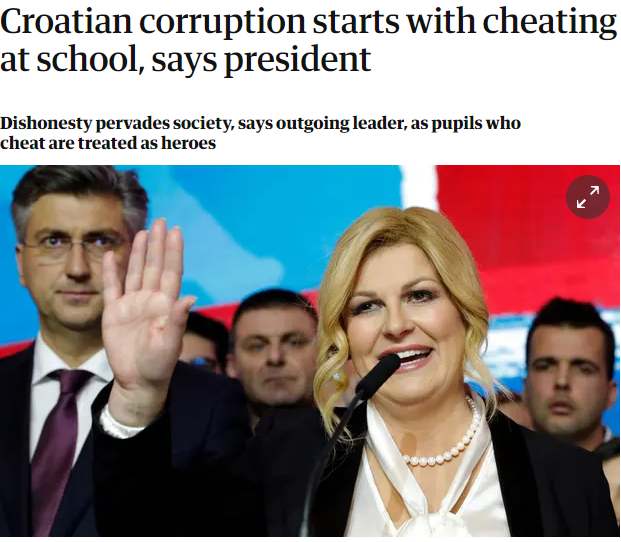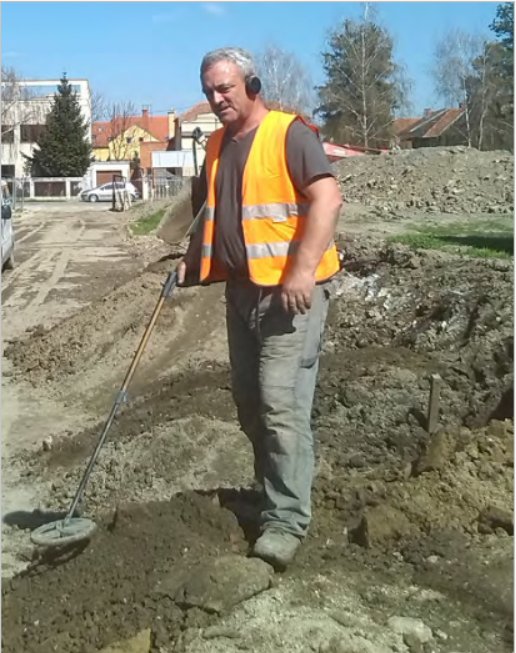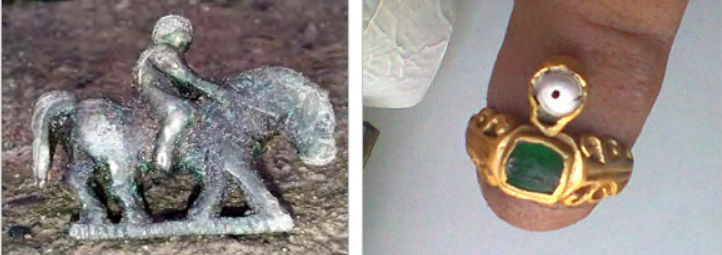VIDEO: Amorella - Viking Line Selling Vessel Constructed at Brodosplit
As Morski writes on the 17th of January, 2020, the Finnish shipping company Viking Line has announced that it is selling "Amorella", a passenger ship of Croatian production which was constructed in the well known Split shipyard Brodosplit.
By the end of 2020, it will be replaced by a new Viking Glory ship arriving from Xiamen Shipyard in China. Amorella sails under the Finnish flag and its home port is Mariehamn, often referred to as the very gateway to the Baltic sea.
The sale was confirmed by Viking Line CEO Jan Hanses. Although, he says, there were shipping companies that showed interest in Amorella, the sale will be delayed until a new ship is delivered to the Finns because the company doesn't want to get itself into the unfortunate situation of not having a vessel at all for a period of time.
M / S Amorella was, as stated, built in Brodosplit, more precisely in the special facilities shipyard. It is the first is of four twin ships: M / S Isabella, M / S Gabriella and M / S Crown Seaways, all of which were built in the aforementioned Split shipyard.
The ship was ceremonially transhipped on September the 28th, 1988. It was the pride of the City of Split and of course of Brodosplit at the time, and the ship can accommodate almost two thousand passengers and 400 vehicles, which was a huge highlight back in the late eighties. The American Maritime Reporter & Engineer News also proclaimed Amorella the most brilliant ship of the year.
Duška Boban and Nikola Bajto have written a book on the ship made in Split called "Amorella - a floating city". Lordan Zafranovic filmed the award-winning documentary "Amorella - A Road to the Future" back in 1989, which showcases footage of the construction, the launch and the eventual handover of this famous vessel in the Dalmatian city of Split.
Tena Perishin and Sime Strikoman also created the television report "With Amorella across the Baltic" back in 1991, in much more turbulent times for Croatia.
Watch the video below:
Make sure to follow our dedicated Made in Croatia page for more.
Nina Commerce from Zagreb Installs Solar Panels With EU Help
As Marta Duic/Poslovni Dnevnik writes on the 18th of January, 2020, the European Union funded 60 percent of the project, cutting spending by 43 percent. Nina Commerce, a part of the popular Planet obuća (footwear) shopping chain, started a project back in June of 2018, which involved building a photovoltaic power plant for its own purposes at its facility located at Slavonska avenija (Slavonian avenue) 19 a in the capital city of Zagreb.
Today, the works are finally complete and the power plant on the roof of the building belonging to Nina Commerce is up and ready to go. The project is worth a massive 1,976,823.00 kuna in total, of which the European Union co-financed a welcome 1.22 million.
"The pilot operation of the photovoltaic power plant started on January the 17th, 2020, and if everything goes well, the power plant will enter into permanent operation. We were encouraged to create energy savings and improve environmental awareness. Of course, we were also encouraged by the co-financing of the project by the cohesion fund, as well as our partners who have gone through the painstaking process of purchasing equipment and building it,'' explained Tomislav Filipovic of Nina Commerce.
Nina Commerce participated in the construction with 40 percent of the value and the remaining 60 percent was covered by the EU, and when it comes to the project's documentation and publicity, Nina Commerce participated with 15 percent and the EU chipped in with a massive 85 percent of the costs. The construction of a photovoltaic power plant will reduce harmful CO2 emissions by a very impressive 58.30 tonnes, and the share of renewable energy in the company’s total energy balance will stand at 43.42 percent.
''The process was extremely arduous and rigid, and it was very important to adhere to all of the rules and norms issued by the EU Fund, given the time frames. Fortunately, we made all of our commitments on time so we didn't have any financial corrections to deal with and everything went well,'' Filipovic noted. Otherwise, Nina Commerce employs more than 380 people, operates in Croatia, Bosnia and Herzegovina and Serbia and currently has 129 branches under its belt.
"The plan for 2020 is to remain the largest shoe retail chain in the Republic of Croatia and continue to expand while maintaining jobs and increasing employee salaries," concluded Tomislav Filipovic.
Make sure to follow our dedicated business page for more. Give Total Eco Croatia a follow for more information on official and unofficial ways Croatia takes care of its environment.
Young Croat Creates Investment Fund Managed by Students
As Lucija Spiljak/Ivan Tominac/Poslovni Dnevnik writes on the 17th of January, 2020, this year, for the first time, students in Croatia have competed in a new category - as financiers - with the aim of raising financial literacy among young people, and the winner was Dorian Antesic, a young Croat and a first year graduate student at the Faculty of Economics in Rijeka who was awarded 10,000 kuna.
The main sponsor of the financiers category is the well known AZ pension funds.
“If we want our young educated people to stay in Croatia then besides messages and wishes aimed at them, we must provide them with opportunities, projects and jobs that will really keep them here. In addition, it is crucial for young people to gain study experience so that they're more ready to engage in work processes as soon as they graduate and gain their first jobs,'' said Natasa Hrabar Kaštelan, Head of Marketing and Public Relations at AZ Pension Funds.
Dorian, the young Croat who created the platform, revealed that during his studies he was ambitious and had a curious and restless spirit, so in his fresh CV there are various things listed - from conference organisation to project management and teams within the AIESEC youth organisation in Rijeka, as well as having done a semiannual student exchange in Prague.
He learned about the Hrvatska pamet Hrvatskoj (Croatian talent for Croatia) project through the internet and when he read all the categories, he realised that he had the ideal project for the latest category - Financier.
“At the time, I was just writing a final paper on the topic of a Student Investment Fund and thinking that it would be great to launch something like that in Croatia. I'd already briefly made a plan for establishing such a fund in Croatia when I saw an advertisement for Hrvatska pamet Hrvatskoj and I immediately decided that I'd elaborate on this plan a little better and send it to the tender,'' explained the innovative young Croat.
The Stoik Student Investment Fund is a student-managed investment fund. It is designed as an organisation where students learn about investing and then invest real money in the financial market. Within the organisation, numerous workshops, lectures and courses on investing in the financial market will be set up, and the students, imitating the work of a real investment fund, will invest real money that they collect from sponsors.
This will give the students the knowledge of investing, but most importantly, they will have the confidence to start investing on their own with their own money. Dorian got the idea while researching the topic for his final paper.
"I came across a concept of learning through student investment funds that was started in the US, and I became interested immediately. An additional motive was that there is no literature on such funds in the Croatian language, so my final work under the name Student Investment Funds is the only one in our language so far,'' the student notes.
The categories have been refreshed with one new one, explained Hrabar Kaštelan. The Financier category is intended for students who share interests such as Dorian's, and through their engagement, they can become partners and advisors in the development of new business ideas.
“It seemed like a good idea to encourage students to think of ways to get their own population interested in topics in the areas of finance and the work of pension and other funds. We're pleased to see how young people think and how they can be partners and advisors in projects like this. I think, both in business and in working on new projects, it's a winning combination of experience on the one hand and ideas and freshness on the other. It would be great if some good ideas really came to fruition,'' added Hrabar Kaštelan.
Hrvatska pamet Hrvatskoj ended only a week ago, but this talented young Croat is already launching a larger project - Dorean Finance.
“The project will bring together students interested in finance and economics from around the world. I plan to incorporate Stoik within the project as well,'' announced the student, who has a lot of work to do, but at the same time, he is accompanied by enthusiasm and excitement.
“Since I needed to write a project plan to go to the second round, I've learned a lot; from strategic thinking, analysis and planning to rationality and 'going back down to earth' regarding some goals. Hrvatska pamet Hrvatskoj gives students a longer application period, which actually makes it easier for students to write in, in addition to their student responsibilities. I hope that more people will follow my example, especially my colleagues from the University of Rijeka,'' said Dorian Antesic.
This ambitious young Croat is interested in business, finance and investment, hopes to someday travel the world and work, but ultimately, he wants Croatia to be his home in which to grow his community.
Make sure to follow our dedicated Made in Croatia and business pages for much more.
President Kolinda, Corruption is Not the Only Thing That Begins in Croatian Schools
Outgoing Croatian President Kolinda Grabar-Kitarovic was in the international media this week, her topic how corruption in Croatia starts with cheating at school. It is not the only thing which starts in Croatian schools.
I don't normally delve into Croatian politics, as it is rather complex to understand for an outsider, but a recent interview with President Kolinda Grabar-Kitarovic caught my eye for other reasons.
Actually, her interviews and public utterances during a very chaotic, and ultimately unsuccessful re-election campaign have been catching my eye for weeks. Whether it was the bizarre assertion that those who died defending Vukovar during the Homeland War were happy to do so, or that - just a week before the election - President Kolinda had magically struck deals with foreign states which would bring jobs for Croatians living in Croatia for the tidy sum of 8,000 euro per month (almost ten times the average wage in Croatia), something which for some reason could only be made public a week before the election.
(President Kolinda Grabar-Kitarovic interviewed in The Guardian)
Having heard so many things coming from the presidential office in the last five years, I am still trying to figure out what President Kolinda achieved in her term of office.
Apart from becoming the first Croatian to ever touch the World Cup, of course...
The election lost, it is time for President Kolinda to cement her legacy internationally, and I was somewhat intrigued to see an interview with her in The Guardian this week entitled Croatian Corruption Starts with Cheating at School, Says President. In addition to the subject in the title, President Kolinda managed to offend the Croatian Nursing Council who issued a press release after the interview, as well as distance herself from any corruption in Croatia. While she served in the government of convicted criminal, former Prime Minister Ivo Sanader, she was - according to the article - kept away from the big decisions and had no knowledge of everything. There was no mention of the only convicted criminal who organised many of her birthday parties, or her relationship with the mayor of a large Croatian city, whose activities challenge the very notion of being innocent until proven guilty. To name but two.
But the legacy of President Kolinda is not the subject of this article, it is the notion of Croatian corruption starting in schools. While the president did not elaborate on what steps she had taken to tackle this issue during her five years in power, it got me thinking about other things that start in Croatian schools. Cheating in schools is a universal fact of life, and I don't quite follow the logic of how cheating in a Croatian school is the start of a life of corruption, when cheating in a Swiss school is not. And while it would be a bit much to expect a president to eradicate cheating in schools, efforts to address other, Croatian-made, problems in schools could have a much healthier outcome for the future of this country and its next generation.
As a foreign parent of two girls in the Croatian schooling system, I have been quite surprised by a number of things over the years. The first is how quickly kids in Croatia are conditioned politically. My youngest came out of kindergarten one day and proudly told me that 'my friend Iva is HDZ and my friend Ivan in SDP.' She had no idea what HDZ or SDP actually were, but the fact that political parties were even being mentioned by 5-year-olds was a sign of how overtly political Croatian society is - the most political of the 10 countries I have lived in.
Ask a regular British adult on the street how many politicians he or she can name, recognise and know their job title. I doubt the average number would be more than 6. We have no politics in our house and never talk about the subject at home, yet by the age of 9, my eldest knew all about the mayors of Jelsa, Split and Zagreb, Presidents Kosor, Tudjman, Mesic, Kolinda, Prime Ministers Zoki, Oreskovic, Plenky, and there is no party without young Karamarko. This Croatian media obsession with turning average politicians into rock stars is pushing them and their divisive policies into the minds of the youngest in society.
This all happens outside of school, of course, and the first time I realised what an effect schooling in Croatia could have on my kids was early in the morning of November 19, 2013. It was just after 6 am, and my eldest daughter, aged 7 and in her first year of school, came into our bedroom and woke me up. She was shaking, trembling, crying, and I had never seen her like this. I took her into the bed, kept her warm, safe and loved, then asked her what was wrong.
"I had my first nightmare, Daddy, it was horrible." As I held her tightly, I wondered what in the world could have given her a nightmare. She lived in a loving family on the safe and idyllic island of Hvar, with lots of friends at school. It made no sense.
And then I remembered the date. November 19. Which was the day after November 18. Vukovar Remembrance Day, the day that all Croatia rightly stops to commemorate the sacrifice of those who gave their lives in the brutal siege of the hero city before its fall on November 18, 1991. Did this nightmare perhaps have something to do with Vukovar and what they had learned at school?
"Yes, Daddy, it is horrible. The Serbs came with tanks and they destroyed everything, and then they took an old man and put him on this thing, and then stretched his body, and then they put cigarettes out in his eyes." And she cried again. "Some of my friends drew dead bodies, Daddy, but the teacher told them that they should not draw dead bodies." You can see her homework in the lead photo, complete with the red tick and 'Bravo' from the teacher.
Seven years old.
Let's forget about the cheating in schools for a moment, President Kolinda, what kind of society are we building where we are giving our kids and grandkids their first nightmares at the age of seven? Burdening them with the division and conflict of the past at such an early age? It is entirely right and proper that Croatian children should learn about and know of the horrors of Vukovar when the time is right, as well as pay their respects. But at the age of seven, with impressionable kids that age drawing dead bodies for homework? Is it really necessary to poison the minds of the next generation?
Vukovar is a very emotive issue in Croatian society, and I shied away from it until last year, when I decided to take part in the annual remembrance parade, as it had never really been documented in English. It was a harrowing day, but much different to how I had envisioned it. You can read my account here.
I was shocked at how the Vukovar memorial event had been hijacked for political purposes by the politicians of today, President Kolinda included. And when the national focus left the city after its annual day of remembrance, Vukovar returned to its hopeless, abandoned limbo where it has existed ever since peace came. This was perhaps not the prosperous city that those brave defenders would have been happy to die for, as the president claimed, above. Rather than scoring political points and doing nothing to help the survivors of Vukovar, here is how to honour the fallen and assist the survivors.
Cheating in schools is a global problem, and a hard one to eradicate. Giving Croatian kids nightmares from the age of seven is a very Croatian problem, caused by Croatian policies, and extremely simple to eradicate by Croatian politicians.
Now that would be a presidential legacy worth talking about.
Euro 2020: Croatia Handball Makes Dramatic Comeback to Top Germany!
January 18, 2020 - The Croatia handball team met Germany in the second game of the second round of the European Championship in Vienna on Saturday. Thanks to an incredible comeback, Croatia topped Germany 25:24 and is one step closer to the semifinal.
At 8:30 pm, Croatia and Germany met for a crucial match of the European Handball Championship in Vienna. After Belarus defeated the Czech Republic and Spain defeated Austria, the calculation was pretty clear: a Croatian victory against Germany would secure the semifinal.
Recall, Germany had no easy road to the second stage of the competition. In the first round, Germany was convincingly defeated by Spain, and in the last round, they barely celebrated against the Netherlands. But anything could happen on Saturday night - and we're pretty sure it did.
Croatia’s Maric scored the first goal of the game in front of over 6,000 Croatian fans in Vienna for 1:0 in the 2nd minute. Duvnjak increased Croatia’s lead to 2:1 in the 3rd, though Germany equalized seconds later. Germany took the lead in the 5th minute at 2:3, then 2:4 in the 6th minute.
Mandic scored for 3:4 in the 7th, and Karacic equalized in the 9th minute for 4:4. Horvat missed a 7-meter shot for Croatia in the 11th to keep Germany in the lead at 4:5 - and Karacic missed one in the 14th minute. The intensity was high.
Cindric scored the equalizer seconds later, though Germany quickly retook the lead for 5:6 in the 15th minute. Germany was up by two goals in the 17th (5:7), and three goals seconds later (5:8).
Cindric scored again for 6:8 in the 19th minute and Stepancic scored for 7:9 in the 20th.
Croatia reduced their deficit to 8:9 thanks to Cindric in the 21st, though with two players up, Germany was back to +3 in the 24th minute (8:11).
Yet another 7-meter shot was awarded to Croatia, which Horvat missed for his second time.
In the 25th minute, Germany was up by four goals (8:12) - and in the 27th minute, it was +5 (8:13).
Duvnjak scored for 10:13 in the 28th minute.
In the final minute of the first half, Karacic scored for 11:13, though Germany was given a 7-meter shot, which they scored for +3 at the half (11:14).
Two Croatia goals to open the second half were disallowed due to fouls, and Germany increased their lead in the 32nd for 11:15. In the 33rd minute, Germany was up by five goals (11:16).
Croatia was awarded a 7-meter shot in the 35th minute, which Duvnjak scored for 12:16. But a minute later, Germany scored a 7-meter shot for 12:17.
Brozovic scored for 13:17 in the 37th, with Karacic reducing the deficit to -3 moments later (14:17).
Stepancic and Mandic were brilliant in the 39th for a score of 16:18 - and Stepancic scored again for 17:19. Karacic scored for 18:20.
Croatia was awarded another 7-meter shot in the 44th minute, which Duvnjak scored again for 19:21.
Stepancic was outstanding for 20:21, and Croatia was well and truly on their way to making a comeback.
Horvat brought Croatia to 21:22, and Mandic scored the equalizer for 22:22 in the 48th minute!
Croatia and Germany went back and forth for the next few minutes, with shots defended on both sides.
Germany retook the lead in the 52nd minute thanks to a questionable 7-meter call. The game was 22:23 for Germany.
Karacic scored the equalizing goal for Croatia in the 54th minute for 23:23.
Duvnjak scored a crucial equalizer for 24:24 with three minutes to go. Emotions were high - and the intensity was higher.
Karacic put Croatia back in the lead in the 58th minute for 25:24 - the arena went wild.
Germany was unsuccessful in their final attack and the game ended 25:24 for Croatia! Karacic was named the player of the match.
With this win, and as long as Croatia does not lose against Spain and the Czech Repulic, they will play in the semifinal of the competition.
To read more about sport in Croatia, follow TCN’s dedicated page.
Letavica - Ancient Roman Shipwreck at Nautical Fair in Düsseldorf
As Morski writes on the 18th of January, 2020 FOKA d.o.o. and the owner of that company Vedran Dorušić, as the person who discovered an extremely valuable and significant underwater archaeological site on the island of Pag, more precisely the remains of an ancient Roman shipwreck from the 1st century AD, will take great pride in presenting Pag and the Letavica underwater site at the nautical fair in Düsseldorf (Boot Düsseldorf, from the 18th to the 26th of January, 2020) as part of the promotion of Croatian tourism for 2020.
The island of Pag is not only recognised by both Croatian and foreign visitors as an excellent destination for family and active holidays, but also as a site that abounds in archaeological sites from various periods of time, among which sites from ancient times stand out. One such site is a recently discovered submarine archaeological site - Letavica.
The Letavica site lies at a depth of 37 to 39 metres, at the boundary of the rocky and sandy slope of the seafbed, at a distance of about 130 metres from the coast. It regards a group of about 400 visible amphorae that are typologically classified into the group Lamboglia 2, and can be divided into several variants. Judging by the basic characteristics of the form, the amphorae can be dated to the 1st century BC, the time of the Roman Republic. The amphorae are mostly covered with marine vegetation and coalesce, with only a small fraction having escaped from the main concentration of the findings.
At a distance of about 38 metres to the northeast, there is a lead piece of an ancient lead-wood anchor, 1.6 metres in length, which probably belonged to the same ship. In the immediate vicinity of the part of the anchor lies the bottom of a larger ceramic vessel, the details on which currently remain unknown,'' said Vedran Dorušić.
''We discovered the Letavica site on July the 27th, 2018, during a regular dive. We changed our plans because there weren't any obstacles to that - so we went deeper. This is the only ancient shipwreck up to a depth of 40 metres that you can dive to without needing to be protected by a metal cage - so the diving experience is far more powerful,'' says Dorušić, revealing that there are about 400 visible Lamboglia 2 amphorae on this amazing site alone.
The location of the findings on the seabed indicates that it was not cargo that fell from the ship's deck during the accident, but sank to the seabed with the entire ship.
The length of the main concentration of amphorae is about 23-24 metres and indicates a ship length of 25-30 metres.
Make sure to follow our dedicated lifestyle page for much more.
Metal Detecting Tours Near Europe's Oldest Town in Eastern Croatia: Fascinating!
January 18, 2020 - Croatia has a diverse tourism offer, but some of its most interesting aspects rarely hit the news. The fascinating story of metal detecting in an around the oldest continuously inhabited town in Europe - 8,300 years of treasure to discover.
It is quite rare for a man from Lancashire to publicly compliment a Yorkshireman, so I will keep this short - one of the most interesting characters I met last year in Croatia was Steve Gaunt from Leeds.
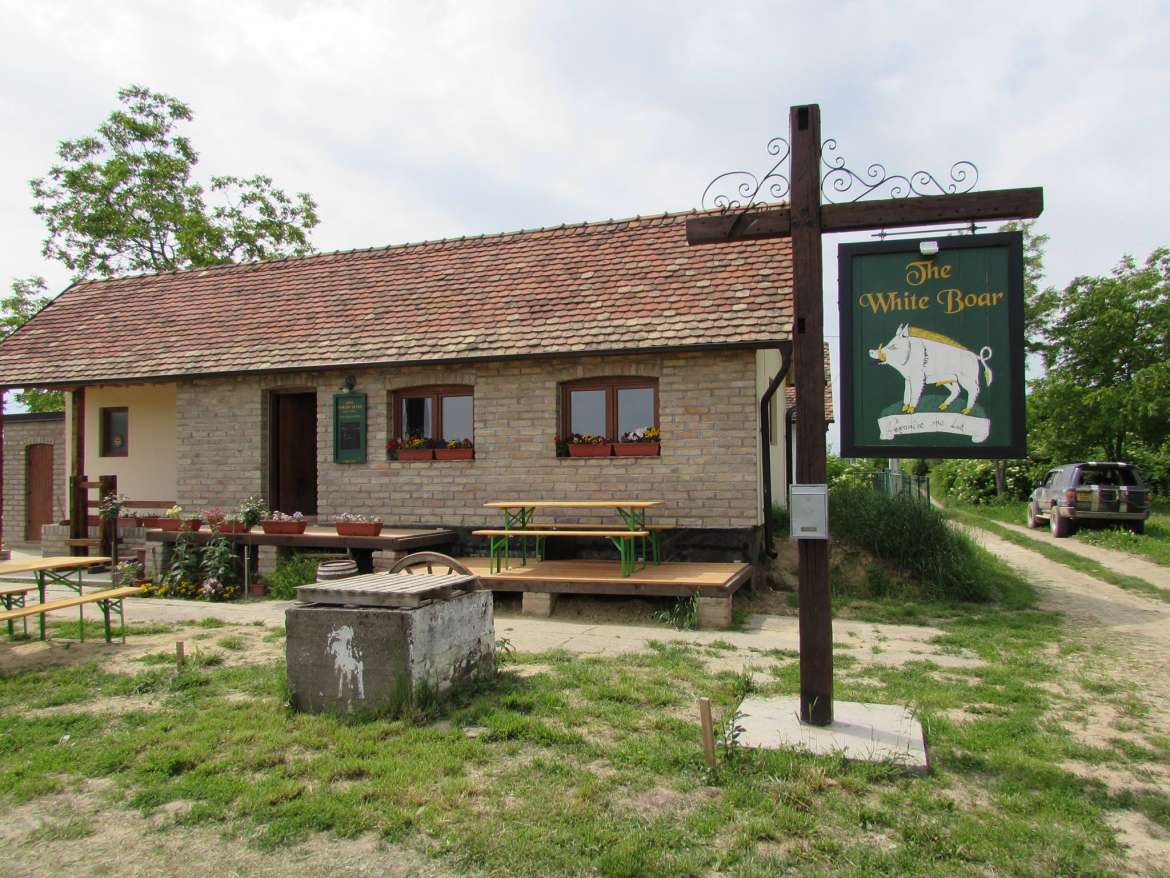
Having discovered that he was the man behind the red London telephone box which stands in the middle of Vinkovci, the oldest continuously inhabited town in Europe, I soon learned that he had made some other, equally quirky contributions to life in and around this historic eastern Croatian town. He introduced Yorkshire puddings to the menu of a Vinkovci restaurant, started producing the first cider in Croatia, and even opened an authentic English pub in the filed literally in the middle of nowhere.
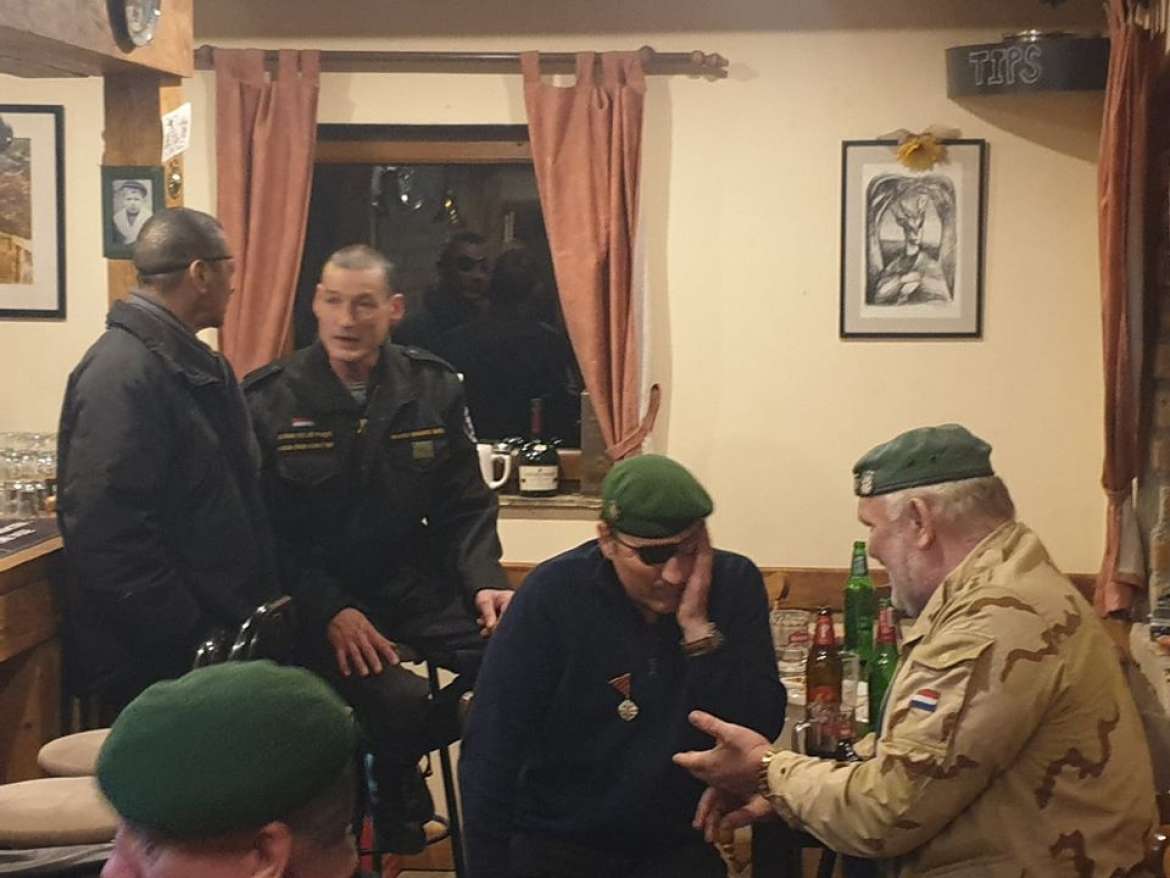
I finally met Steve on perhaps the most interesting night of the year at his pub, the White Boar. November 18, Vukovar Remembrance Day, as he holds a barbecue for all the foreign veterans who - like him - volunteered to fight for Croatia back in 1991 and 1992. It was quite an evening.
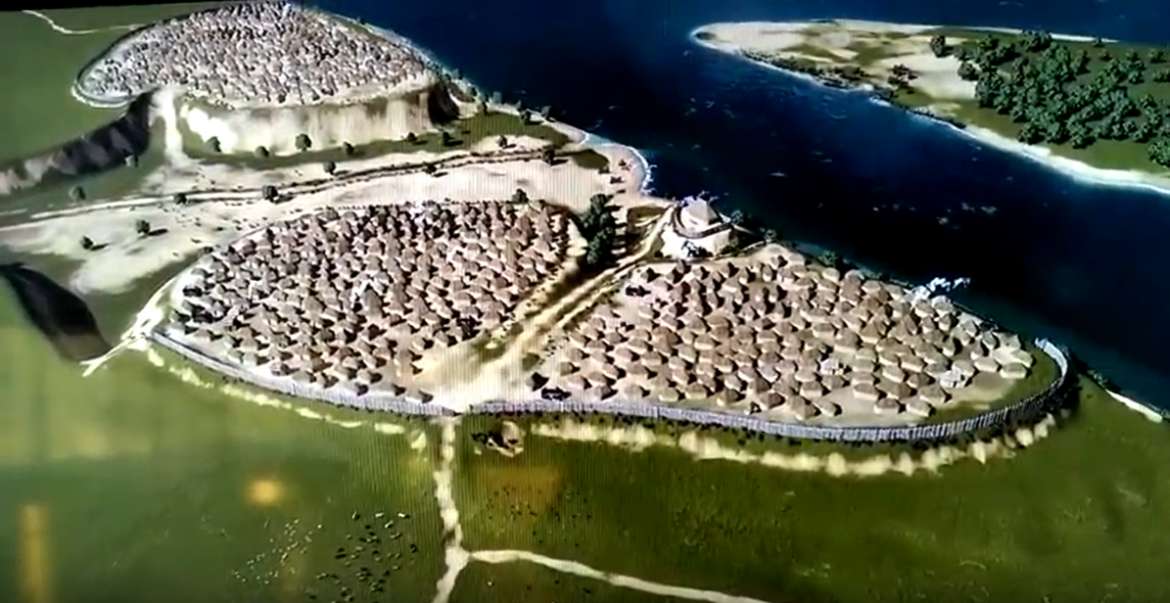
During the evening, he told me about another of his passions - metal detecting. He has been a keen metal detector for years, but imagine his joy when he found himself living in a town dating back 8,300 years, birthplace of two Roman Emperors, and just a short distance from the phenomenal Vucedol settlement, which we featured recently (see above).
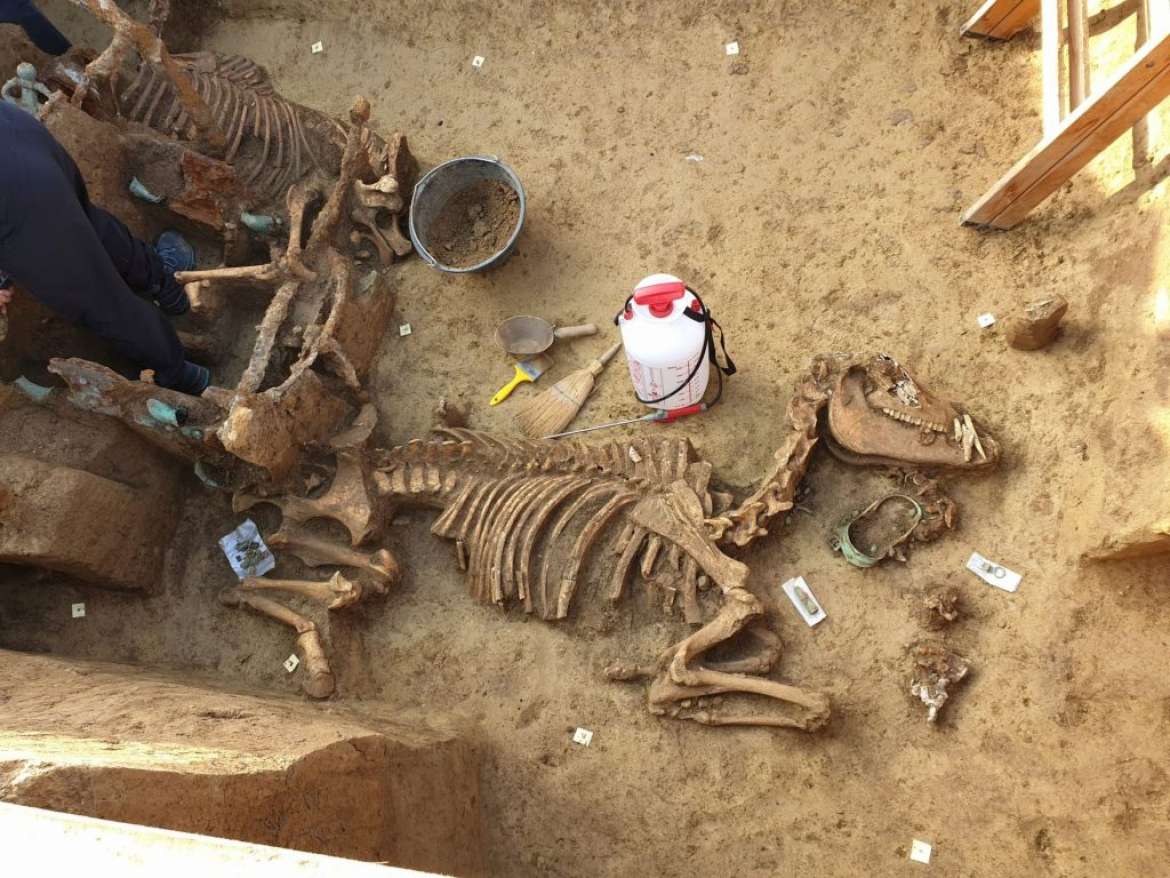
The recent find of a Roman chariot with horses close to Vinkovci was one of the global Croatian stories of 2019, and the more I looked into it, the more I realised that this whole section of eastern Croatia is arguably one of the richest untapped archaeological sites in Europe. And what a great playground this must be for a metal detectorist, provided he abides by the cultural heritage laws of the land, of course. Which Steve does absolutely. I was amused to learn that not only does Steve hold metal detecting tours for global enthusiasts, but at least three of them, all Brits, ended up buying houses in the field where his pub lies. The most unlikely of British colonies in eastern Croatia.
It had been on my list to catch up with Steve and learn more about metal detecting in Croatia, but I started with a little internet research, which brought me to my first amazing discovery - the unearthing of an Avar burial ground in Nustar by Steve and his Croatian metal detecting friend. A piece of land was slated to be turned into a football stadium, and when 17 graves were discovered while digging, their bones were taken and reburied elsewhere.
As you can see from Steve's documentary in the video above, the Avar burial ground in Nustar yielded quite some treasure, and all thanks to two metal detecting enthusiasts and their quick reactions. Great story.
Steve's metal detecting rallies seem pretty popular too - here is a report from an international visitor, from where many of these photos come from, and you can check out the video report in the video above. I contacted Steve to answer some questions about metal detecting. I was expecting some interesting responses, but nothing quite like what he sent, which I produce for you here, uncut.
1. You live in the oldest continuously inhabited town in Europe, 8300 years old. Tell us a little about how you felt about the potential as a man with a passion for metal detecting.
I have been a metal detectorist since 1976 when it was in its infancy in the UK. I never found anything really ancient but it didn't matter, I was in it for fun not reward. In Croatia it was after the war that I realised just how rich they are was in ancient history and up until about 2003, I helped on archaeological digs for the town museum. After that I bought a metal detector hoping to use it with the museum and on my own searching out unknown sites. Unfortunately, the museum reacted negatively to this and reported me to the police. Meanwhile I published every single find on a web page (Ex Preteritus) which is still active. Museum staff informed the police that I was SELLING items on this site with no evidence at all, and I was arrested, my detector and computer were confiscated, which contributed towards the ill health I Have today. They decided there was no criminal case to answer to, but it took me a year to get my detector back (the police are in the habit of illegally confiscating detectors and were surprised I pushed for the return of mine.
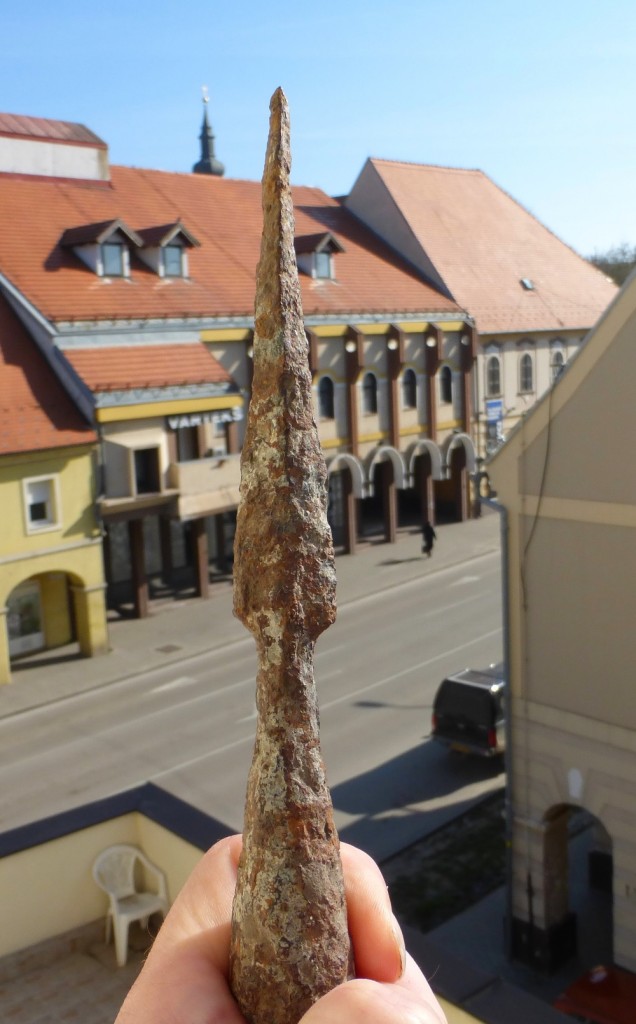
Eventually, a younger team took over at the museum and I managed to convince them that the detector was a tool that couldn't be ignored and eventually the staff as a whole became pro-detector.
2. What are the rules? Presumably you can't just find and keep your finds. How strictly are things enforced in Croatia?
There are no laws against metal detectors, but that doesn't stop the police and aggressive museums from moving against them.
What there are are laws against "Illegal archaeological excavations" and "Taking into possession items of cultural value." What this means is that if a local museum and the local police are on good terms, they will work together to prosecute detectorists on those two counts. This manifests itself in two ways. The law is that everything of cultural value belongs to the State. So, if a detectorist finds something, he should hand it in to the local museum or representative of the Ministry of Culture. In practice, museum staff have been instructed to break the law and REFUSE any items brought in from detectorists. On some more cynical occasions, a museum has taken the best items, told the detectorist he can keep the rest, the sent the police round. Osijek Museum is infamous for this. On a recent rally I sent out two scouts to find new fields and they were stopped by traffic police who looked in their camper van, saw their machines and arrested them. Two new detectives to the area were ready to charge them with illegal archaeological excavation, but the police chief who knows the local system tore into them and put them straight. Too long have lazy or jealous museum staff used the police to bully law-abiding detector hobbyists.
(Steve Gaunt, the metal detectorist)
3. I hear that your personal contribution to the museum in Vinkovci is quite significant. Can you be more specific?
My personal contributions are that I have discovered over 70 previously unknown sites and thousands of artefacts.
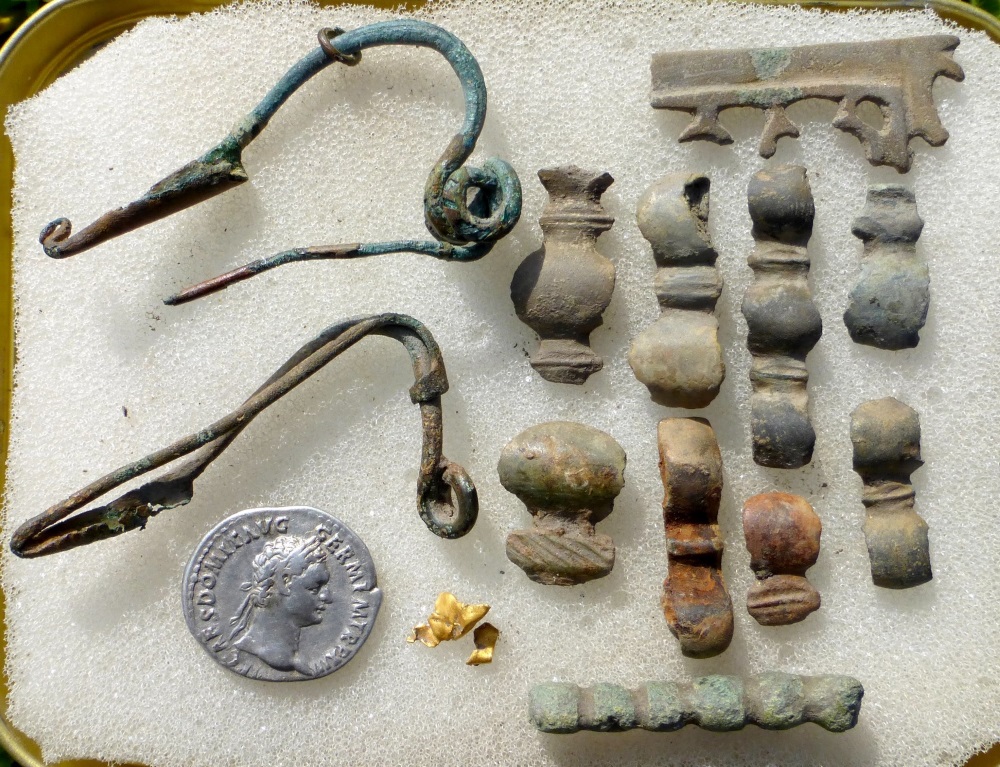
4. Tell us about some of the finds you have had?
I have found unique items, Celtic, Roman, Greek provincial and medieval coin hoards Whole burial grounds, lost villages and Roman villas.
5. Tell us about the archaeological potential you feel there is in this part of Europe. Vinkovci the oldest town, Vucedol an ancient culture etc.
With regard to potential, this changes from year to year. Ten years ago I could find the ruins of local buildings with perfectly preserved artefacts. But agriculture is the main enemy of archaeology. I can now inform the world that all metal age sites and most Neolithic sites on arable land in Croatia are totally ploughed out. What does that mean? It means that the plough has destroyed everything and all that is left are a few metal artefacts that deteriorate continually due to machine damage and chemicals. In a few years there will be nothing left for the detectorist to recover.
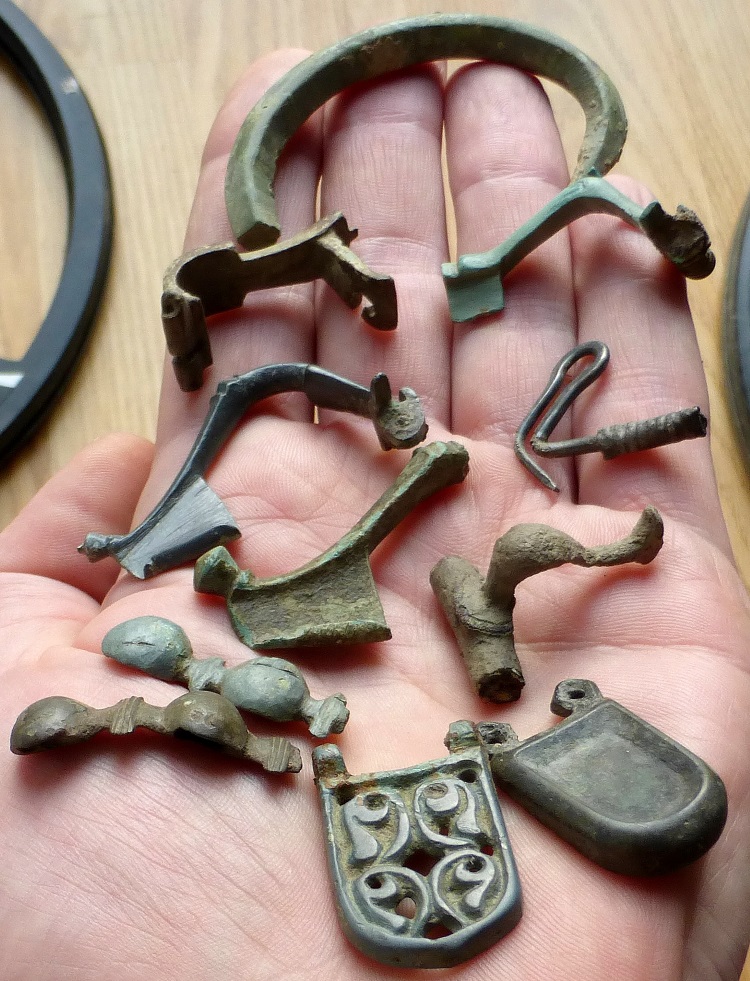
6. I am sure that metal detecting in this region has not been without controversy. Anything you would like to share?
Controversy. This means that detectorists can fill a museum with stuff and it is never mentioned, but the moment someone pockets a coin then the wave of hate descends upon us. A recent example shows the ignorance of many archaeologists. A deep tomb was excavated by robbers over time. When the staff of Varaždin Museum finally visited the site, they found that it had been systematically looted over time while no locals noticed anything. The archaeologist in charge then screamed to the press " We knew something would happen when we saw detectorists in a field 3 kilometres from this site. Good grief! Unfortunately they continue in the same vein and recently Jutarnji List has repeated the same unfounded allegations. Archaeologists believe that commercial metal detectors can go 5 metres deep, when in reality its 25 cm.
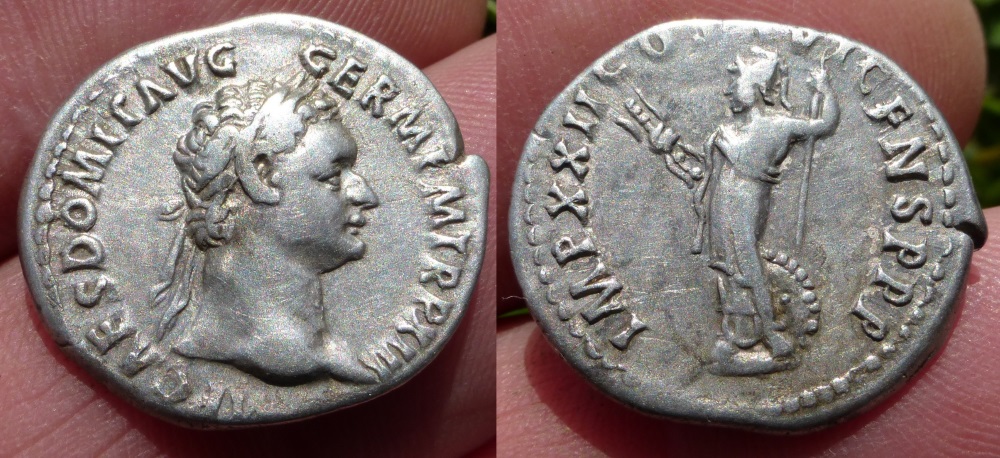
7. You have attracted some enthusiasts from the UK to this part of Croatia in search of treasures under the ground. Tell us more.
Due to the destruction of sites in Slavonia, I decided to organise two metal detecting events a year when right-minded folk could come over and help pinpoint sites and recover remaining artefacts for the local museums. Usually we worked with permission of the Ministry of Culture which allowed us to detect even on protected sites. We have had ten of these events to date.
8. When is your next tour and how do people sign up?
We are planning the next official tour in March 2021. You can contact me via the White Boar website for more information.
Apart from donating everything to Vinkovci Museum, Steve has also preserved a momento of some of his findings in a book he wrote - Medieval Ring Designs.
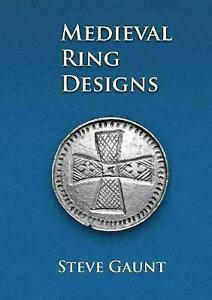
Want to learn more about the oldest continuously inhabited town of Europe? 10 things to know about Vinkovci.
Bernardić: As SDP leader, I Am Party's Candidate for Prime Minister
ZAGREB, January 18, 2020 - Social Democratic Party (SDP) leader Davor Bernardić said on Saturday in Ogulin, where the party leadership met to discuss preparations for parliamentary elections, that as the SDP's leader, he was the party's only candidate for prime minister.
Bernardić said the fairest thing to do would be to hold parliamentary elections as soon as possible as the current parliament had long stopped representing voters' will, with "as many as 28 deputies having crossed the floor."
"The ruling coalition is a result of political trade-offs in the parliament, so the fairest thing to do would be to call the elections as soon as possible so that voters can decide who will be leading the country. We are ready for the elections, whenever they are held this year," Bernardić told SDP officials who gathered for an operational meeting after last week they appointed ten coordinators for constituencies.
Bernardić believes that Croatia is at a crossroads. "Citizens have said that they want changes, the outcome of the European election was not accidental, it is a result of the SDP's hard work and great energy, good candidates and good organisation and that outcome created preconditions for the success of our presidential candidate Zoran Milanovic," he said.
He said that work on the party's platform was nearing completion and that it contained key solutions for higher living standards, higher salaries and pensions, reform of the health and education systems, and greater trust in state institutions.
"The SDP not only has policies, it has people to implement those policies," Bernardić said and when asked if he was the only candidate for prime minister, he said that as the SDP's leader, he was the only candidate for prime minister.
As for possible coalition partners, he said that those were parties from the Anti-corruption Council, the Croatian Peasant Party (HSS), the Croatian Pensioners' Party (HSU) and SNAGA. The SDP will talk also to other parties that share the same worldview and that supported Milanovic in the presidential elections, he said.
Asked about HSS leader Krešo Beljak's controversial tweet about assassinations by the Yugoslav secret service UDBA, Bernardić said that he had condemned it in the strongest terms, that the SDP had distanced itself from it and that Beljak had apologised for it more than once, as well as that the HSS would stay the SDP's partner.
SDP secretary-general Nikša Vukas said that talks were underway about possible coalitions.
Asked to comment on HDZ vice-president Milijan Brkić's statement that Bernardić would never be prime minister, Vukas said that Brkić was not the one to decide who the prime minister would be, adding that the HDZ should mind its own business. "We will not comment on their intraparty elections, they do not interest us, we are addressing citizens," said Vukas.
More SDP news can be found in the Politics section.
500 Performers at Inauguration of Rijeka as European Capital of Culture
ZAGREB, January 18, 2020 - Around 500 performers will stage 70 events at 30 venues in the northern Adriatic city of Rijeka on 1 February 2020 as part of a day-long programme inaugurating that port city as the European Capital of Culture, and the central event will be Opera Industriale, to be staged at the city port.
Rijeka Mayor Vojko Obersnel told a news conference on Saturday that on 1 February Rijeka would be one of the most entertaining and one of the liveliest cities, not only in Croatia but in Europe as well.
More than 40 artistic organisations, associations, businesses, individuals and institutions will be taking part in the programme, he said.
Obersnel added that he was glad about the enthusiasm demonstrated by citizens and their response to the public invitation to participate in the opening ceremony.
Emina Višnić, director of the Rijeka 2020 company, which is the organiser of the European Capital of Culture project, called on Rijeka residents and guests to attend the opening ceremony, which will also be taking place on January 31 and February 2.
The opening ceremonies will start in the morning of 1 February with a get-together at the city's Skradin bar and city bus tours, with actresses Tanja Smoje and Jelena Lopatić as guides. This will be followed by numerous music and dance performances, open-air exhibitions and other events in the city's streets and squares.
The official part of the inauguration will be held at the Croatian National Threatre (HNK) in the afternoon, with a representative of the European Commission presenting city officials with a European Capital of Culture plaque. Members of the diplomatic corps, government officials, 16 EU culture ministers and representatives of previous and future European Capitals of Culture are expected to attend.
The central event of the opening ceremony, Opera Industriale, to be stage-directed by Dalibor Matanić, brings sound, music and noise as well as effects resulting from a combination of light and darkness and strong symbols of Rijeka and Europe. It will involve more than 120 performers as well as the audience, as several hundred bells will be distributed to parents with children at one moment so they can join in the programme.
The slogan of Rijeka as the European Capital of Culture 2020 is "The Port of Diversity". The city shares the designation with the Irish town of Galway.
More Rijeka news can be found in the Lifestyle section.
Croatia, Austria Push for EU Entry Talks with North Macedonia, Albania
ZAGREB, January 18, 2020 - Croatian Prime Minister Andrej Plenković and the visiting Austrian Minister for the European Affairs, Karoline Edtstadler, said that their countries would advocate the opening of the accession negotiations with North Macedonia and Albania at the level of the European Council in March.
A press release issued by the Croatian government after the Plenković-Edtstadler talks in Zagreb on Friday evening reads that the two countries would push for the adoption of a decision on the start of the negotiations with the two aspirants at the level of the European Council, which is supposed to hold a summit meeting on 26-27 March.
Plenković informed the Austrian minister of the agenda of the Croatian presidency of the EU and its priorities.
Considering the adoption of the EU multiannual budget, Plenković called for agreement which would also take into account all specificities of each member-state, including the youngest member Croatia.
Edtstadler was quoted as saying that Vienna supports Croatia's activities within the preparations of the summit-meeting of the EU and southeast European countries, set for early May in Zagreb.
More news about relations between Croatia and Austria can be found in the Politics section.

